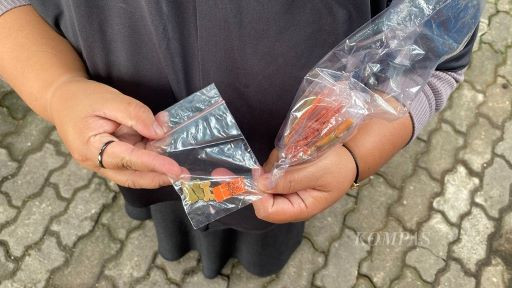Popular Reads
Top Results
Can't find what you're looking for?
View all search resultsPopular Reads
Top Results
Can't find what you're looking for?
View all search resultsWolbachia misinformation
The government’s persistence is certainly key to progress toward achieving its zero dengue death target by 2030
Change text size
Gift Premium Articles
to Anyone
T
he Health Ministry has been struggling to calm public concerns triggered by false information, which suggests that Wolbachia-infected mosquitoes, regarded as a new weapon to control the spread of dengue in Indonesia, are “genetically engineered” and pose huge risks to human health.
There are fears among community members that Wolbachia can infect the human body. Some even believe Wolbachia bacteria can play a part in spreading homosexual activity in people who get bitten by the mosquito, citing a study reporting that a Wolbachia strain can induce the feminization of genetic males.
Residents in Bali last month opposed a pilot project on the release of 200 million eggs of mosquitoes carrying Wolbachia in Buleleng and Denpasar to reduce the impact of dengue on communities there. The possibility of Wolbachia bacteria being transferred to other insects and the potential impacts of such a host shift on the economy and environment are among the concerns behind the resistance.
It is no exaggeration to say the Wolbachia deployment plan has triggered a wave of conspiracy theories, mostly spreading online, including one claim that says billionaire philanthropist Bill Gates is responsible for the development of the “genetically modified” Wolbachia mosquitoes in Indonesia.
One thing is for sure, however, the claims are devoid of evidence and discourage innovative approaches to preventing dengue.
Health Minister Budi Gunadi Sadikin confirmed on Tuesday the government would stick to its plan to continue releasing the lab-bred mosquitoes to curb the spread of dengue fever in the country, despite the controversy.
The government is set to deploy the modified mosquitoes in five cities: Semarang, Central Java; West Jakarta in Jakarta; Bandung, West Java; Kupang, East Nusa Tenggara; and Bontang, East Kalimantan. They were selected because of their high dengue case rates, standing above the global incidence rate of 10 per 100,000 of the population.
The Wolbachia project kicked off in Bontang, Kupang and Semarang this year, before moving to Bandung and West Jakarta next year.
The national program follows the success story of the trial in Yogyakarta last year, which reduced dengue fever cases by 77 percent and the hospitalization rate by 86 percent. The effectiveness of the technology has also been proven in 13 other countries, including our neighbors Australia and Vietnam.
Research has found that Wolbachia, a bacteria commonly found in Asian tiger mosquitoes (Aedes albopictus) is effective in paralyzing the dengue virus in Aedes aegypti mosquitoes, the main vectors of the dengue virus, significantly reducing dengue fever cases and the need for hospitalization of patients with dengue. This approach is deemed effective for controlling vector-borne diseases in densely populated cities with high dengue incidence rates.
The government’s persistence is certainly key to progress toward achieving its zero dengue death target by 2030. Indonesia still has a high incidence rate of dengue, which frequently affects children.
It is our utmost hope that the innovative Wolbachia technology can help reduce the incidence rate of the disease.
The large trial of Wolbachia-carrying mosquitoes, which are not genetically modified and are safe for humans, has shown Indonesia to be a leader in research into using mosquitoes to control disease transmission.
In a world of advancements in health technology, we need to keep an open mind to new ideas. While we are right to have concerns about the consequences of genetic engineering, scientists have long suggested that it may be possible to engineer gene drives to control insects that transmit diseases, like mosquitoes.
In the last 10 years, scientists have made great progress in genetically engineering gene drives in the species of mosquitoes most responsible for spreading malaria, which is also still prevalent in Indonesia. Their studies show that gene drives may be used to reduce the population of those malaria vectors or to stop them from being able to transmit malaria.
The government should not hesitate to take firm action against misinformation and fake news regarding the new technology to fight dengue, simply because they only spread confusion, and even fear among society. Worse, people will become resistant to the health programs that they need the most.











